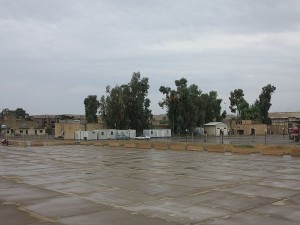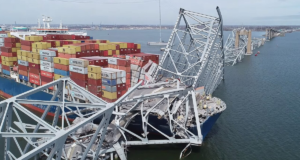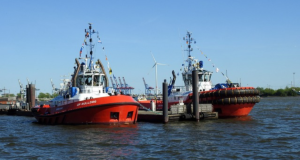“The trappings and institutions of a normal Islamic community and society play a pivotal role in the gradual process of recovery and restabilization.”

Credit: Kayhan Ertugrul via Wikimedia Commons
Dubai, April 26 – Efforts to restore the major northern Iraqi city of Mosul to its former glory following liberation from the Islamic State received a significant boost this week with a pledge from the United Arab Emirates to cover the costs of reconstructing and reestablishing the locale’s most popular venue for trafficking in non-Muslim women.
A spokesman for the group of wealthy Persian Gulf principalities announced Thursday morning that the rehabilitation of war-torn Iraq’s political, cultural, and commercial institutions requires heavy investment from regional powers, and that Islamic solidarity obliges them to do their part in bringing some sense of normalcy back to a place that has known so much instability in recent years.
The battle to retake Mosul, which began in earnest last year amid a broader offensive to roll back Islamic State territory, took many months longer than Iraqi commanders and their Western allies had anticipated, and wrought devastation on the city far beyond the destruction and depredations of ISIS that occurred there prior to that date. In promising funding for the sex slave market reconstruction, the UAE spokesman declared the move the first in what he hopes will become many steps in reestablishing the shining example of the finest culture that Islamic civilization has brought the world.
“Rebuilding important shrines and mosques is important for the reestablishment of everyday life in that important city, but efforts cannot be limited to that,” pronounced Vice Emir Annas Sidrati, referring to funding projects already underway. “The trappings and institutions of a normal Islamic community and society play a pivotal role in the gradual process of recovery and restabilization.”
Sidrati expects that the sex slave market will regain its prewar trafficking volume by 2020, barring unforeseen setbacks or violence. “Much work remains, not least of which is rebuilding the confidence that buyers and sellers have in the quality and availability of merchandise, which has been hampered in recent years,” he acknowledged. “Daesh focused primarily on Yezidi and Christian sex slaves, with some Kurds in the mix, but at its peak the Mosul sex slave market could return to boasting a broad array of other varieties. Conceivably, sex slaves from as far away as Yemen, even Pakistan or Afghanistan, could also go up for sale there. It all depends on a number of factors, many beyond our control, but we must at least try to set up the basic infrastructure again if we hope to ever bring back Mosul’s full Islamic glory.”
Please support our work through Patreon.




